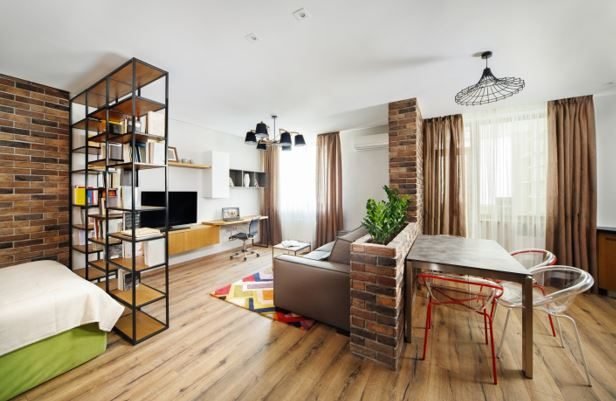If you’re a recent high school graduate and plan on moving out of your parents house and into your own studio, here are some key tips as a first time renter.


When you think about getting your first apartment, does it fill you with glee? Are you sick and tired of living with your parents and ready to strike out on your own?
More than one-third of Millennials would choose a long-term rental over buying a house. It’s a great way to save money on home repairs and property taxes.
Renting is also a good idea if you’re planning to relocate in a few years, or if you are saving to buy a home.
If you’re a first-time renter, this article’s for you. We’ll give you an insider’s look at renting an apartment along with some pro tips for getting a good deal.
Start Saving ASAP
Any list of key tips for first-time renters has to start with money. You’re going to need a lot more than you think to make your big move.
In general, you’re going to need:
- the first month’s rent
- a one-time deposit equal to the first month’s rent
- a deposit for utilities like gas, electric, and water
- an emergency fund equal to three months’ worth of living expenses
If you would like to have a pet in your apartment, you may have to pay a pet deposit or a monthly fee.
It seems like a lot of money, and it really is. Depending upon the cost of rent in your area, you may have to save more than $5,000 to be move-in ready.
That’s why it’s vital to start saving for your move as soon as possible. If you can put away $100 per week, you’ll have $5,000 in less than 12 months.
Make a List of Must-Haves
Everyone has a list of requirements when it comes to renting an apartment. You might want to have on-site laundry or a pool, or you might want to be near public transportation.
As you start to search for apartments online, take the time to look at their lists of amenities. You might really like an apartment online, only to realize that they don’t have air conditioning, wi-fi, parking, or storage.
Some apartment buildings make you pay your own utilities, while others have you covered on gas and electricity. Having utilities included means that you don’t have to worry about the cost of heat, a nice bonus if you really like the apartment.
Before you move in, though, make sure that you know which utilities you’d have to pay. If you are going to pay for your electricity, make good use of energy comparison websites and learn how to compare energy rates to find the best energy plans for your needs. Some places want you to pay quarterly for water, sewer, or trash services.
First-time renters can save money by renting a studio apartment. Studios tend to have one large room with a separate kitchen and bathroom, the perfect size for one person.
They often include the cost of gas and electricity, allowing you to cut down on living expenses.
Pest control might or miight not be included. Pest control London or New York might cost significantly more than smaller cities and might have more pests in general.
Figure out the Roommate Situation
You never really know someone until you live with them, so taking on a roommate or two can be a risky maneuver. Sharing expenses, however, could drastically improve your financial outlook.
Before you move in with a friend or random stranger, take the time to talk about your expectations for cleaning, buying food, and splitting bills.
If you can come to an agreement about those three things, you have a good chance of staying friends for a long time.
Living with people can be difficult. Noisy roommates can interfere with you studying or sleeping, jeopardizing your job – or your future career.
If you’re a morning person trying to live with a late-night podcaster or musician, you might look into renting a studio. Not a studio apartment, but an offsite studio space for rent that would allow them to practice and record away from home.
Overall, the most important thing to remember about living with roomies is that everyone must have their own space with a door that locks. You may be tempted to get a smaller apartment and convert the living room into a bedroom.
The problem with that scenario is that one person’s stuff is more susceptible to theft from outside visitors. Privacy is key to a good apartment-sharing situation.
Decorate, Decorate, Decorate!
Once you decide whether you want to live with roommates and sort out the amenities, it’s time to put down your deposit and move in.
While you may be tempted to buy furniture online, you may be able to get a better deal with a local furniture store. They can often spread out your payments over the course of six months to a year, which is a spectacular way to build your credit.
Once you’ve invested in a couch, a bed, and some basic kitchen gear, it’s time to hit the thrift shops. You will be amazed at what you can find there, including gently-used:
- bedsheets
- towels
- bookcases
- plates
- books
- clothing
Thrift stores may also have cool posters, throw pillows, and tapestries. It’s one of the best ways to save money if you’re a first-time renter, and it also helps the environment.
Thrift stores are great places to find high-quality vintage furniture that’s both beautiful and functional. Take your time and buy furniture that you’re going to have for years to come.
Pro Tips for First-Time Renters
Before you sign your lease, there are a few more things you should know about renting an apartment.
First, you may be able to get a rent discount if you move during the off-season. In addition to locking in a lower rate, you may be able to get the first month for free.
Second, you may not have to pay the pet deposit. Talk to your landlord about waiving the fee for a well-behaved cat or dog. If you can’t get the deposit waived, you may still be able to get the monthly fee reduced.
Finally, always trust your instincts. If you don’t feel safe in the apartment’s parking lot or in its hallways, look for another place to move. Your personal safety and comfort are most important.
Now that you know everything about becoming first-time renters check out the rest of our blogs! We have info on gadgets, dating, and new music!

